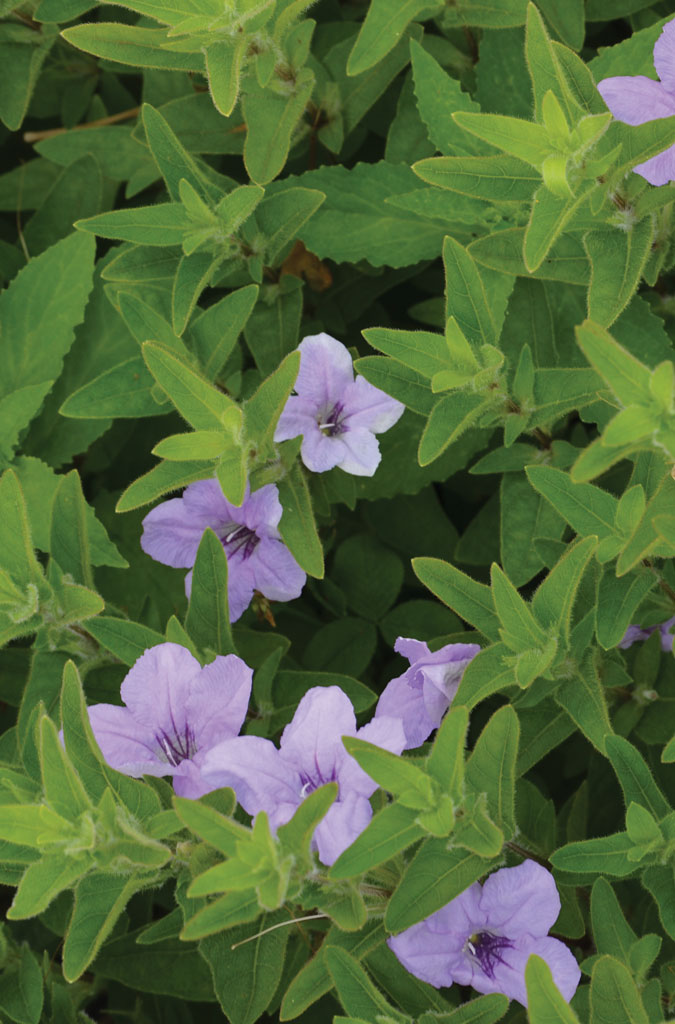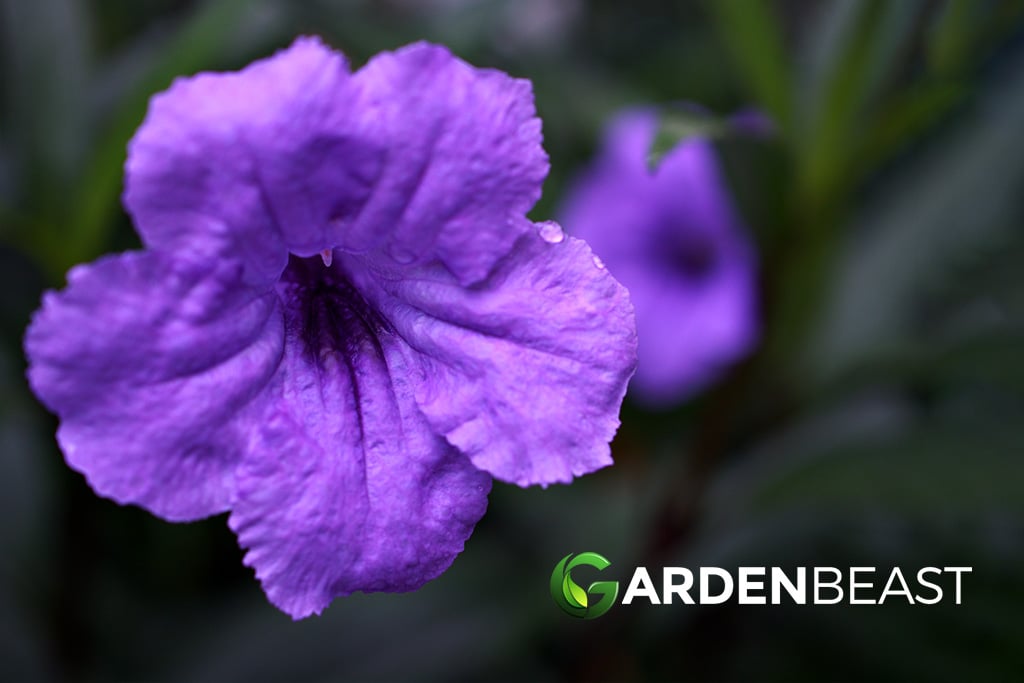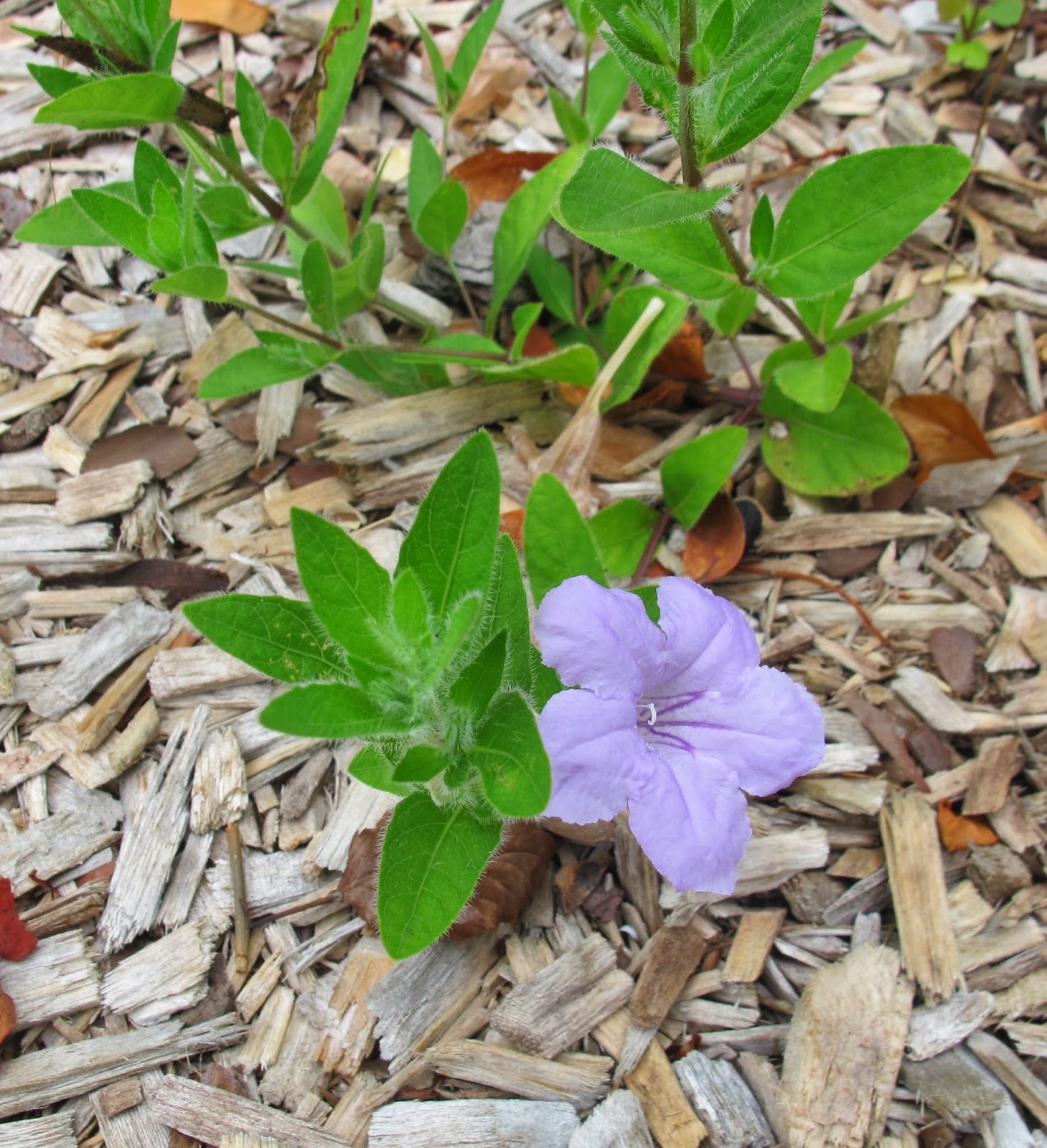
Petunia Blossom Significance in the Language of Flowers My Blog
Selecting & Planting Calfornia Native Plants September 16, 2021 Carol Peck, UCCE Master Gardener • Water slowly over time to penetrate clay • Water to 6 inches deep for herbaceous plants • Water to 12 inches deep for trees and shrubs Mulch • Lay biodegradable materials, such as newspapers or cardboard around new plants to prevent weeds • Type of mulch type on type of plant:

How to Grow Petunia Garden Chronicle
The native range of Hairy Wild Petunia is primarily the American Midwest, from South Texas north to Nebraska, Iowa, Wisconsin. Many isolated pockets also exist from Pennsylvania to South Carolina/Georgia and Alabama. Native range of Hairy Wild Petunia, Ruellia humilis. Source [1] Natural Habitat

Native petunia plant. So delicate Petunia plant, Plants, Native garden
Hardy to zones 4-8, wild petunia is a perennial that's native to eastern and central U.S. It's happy in average to dry soils in prairies, meadows, and open woods and does well in full sun to part shade. Wild petunia grows to about 1.5 to 2 feet tall.

Native Florida Wildflowers Wild Petunia Ruellia caroliniensis
Petunia is a genus of 20 species of flowering plants of South American origin. The popular flower of the same name derived its epithet from the French, which took the word pétun, 'tobacco', from a Tupi-Guarani language.A tender perennial, most of the varieties seen in gardens are hybrids (Petunia × atkinsiana, also known as Petunia × hybrida).

Basic gardening tips plus Australian native plants Basic gardening
Wild petunia ( Ruellia caroliniensis) is a long-lived perennial wildflower found in moist to wet hammocks, flatwoods and sandhills, and along roadsides and in disturbed sites. It typically blooms in late spring through late summer/early fall. The lavender corollas attract a variety of bees including bumble, leafcutter and honey bees.

Petunia Hybrida or Petunia is Native To South America. the Flowers are
Wild petunia is a low-growing, late spring to early fall perennial with lilac or blue flowers and light to medium green foliage.. Size range Small plant (6-12 inches) Light exposure Full sun (6 hrs direct light daily), Partial sun / shade (4-6 hrs light daily). Wild petunia is native to the Eastern and Central United States. C Value: 8.

Ruellia humilis (Wild Petunia) Minnesota Wildflowers
Ruellia is a genus of flowering plants commonly known as ruellias or wild petunias. They are not closely related to petunias (Petunia) although both genera belong to the same euasterid clade.The genus was named in honor of Jean Ruelle (1474-1537), herbalist and physician to Francis I of France and translator of several works of Dioscorides.. Apart from the numerous formerly independent.

A few Prairie Wildpetunias, Ruellia humilis, make a good low plant for
Ruellia humilis (wild petunia, fringeleaf wild petunia, hairy petunia, low wild petunia) is a species of flowering plant in the family Acanthaceae.It is native to the eastern United States. It is grown as an ornamental plant.. Ruellia humilis is native to the U.S. from the northeastern/northern central to the southeastern/southern central regions. According to the Germplasm Resources.

Native Wild Petunias A Complete Guide GrowIt BuildIT
petunia, genus of about 35 species of flowering plants in the nightshade family ( Solanaceae ), native to South America. The common garden petunia ( Petunia × atkinsiana) is an ornamental plant whose showy trumpet-shaped flowers make it popular for summer flower beds and window boxes. Petunia species are mostly annual herbs.

Ruellia humilis Wild Petunia Prairie Moon Nursery
It also blooms continuously from spring to late fall. Ruellia humilis (prairie petunia) commonly known as wild petunia is native to eastern and central U.S. It holds large and abundant flowers that makes this plant attractive to gardens, especially placing them along the border, or in a rock gardens.It is a perennial which occurs in dryish.

Wild Petunia Ruellia humilis Prairie Nursery
Plant of the Week Fringeleaf Wild Petunia ( Ruellia humilis Nutt.) range map. USDA PLANTS Database. Fringeleaf Wild Petunia ( Ruellia humilis Nutt.) close up of flowers, Photo © 2012 David D. Taylor Fringeleaf Wild Petunia ( Ruellia humilis Nutt.) whole plant, Photo © 2012 David D. Taylor Fringeleaf Wild Petunia ( Ruellia humilis Nutt.)

Petunia Hybrida or Petunia is Native To South America. the Flowers are
Ruellia humilis, commonly called wild petunia, is a Missouri native perennial which occurs in dryish soils in open woods, glades, prairies and fields throughout the State except for the far southeastern lowlands. Typically grows to 2' tall. Features tubular, bell-shaped, petunia-like flowers (to 3" long), each with five shallow rounded lobes.

Petunia Hybrida or Petunia is Native To South America. the Flowers are
Animal Resistance Deer Resistant Size Height: 4 to 12 inches Spread: 6 to 12 inches Size Height: 4 to 12 inches Spread: 6 to 12 inches Size

Wild Petunia Guide How to Grow & Care for "Ruellia Humilis"
Petunia, native to North America, is endemic to the southeastern United States. Its growing range extends from eastern Texas and Oklahoma, north as far as southern Illinois, east to as far as New Jersey, then south along the Atlantic seaboard to Florida. (For specific distribution within any of the shaded areas go to the USDA link

Class is now in session for Wildflower Wednesday Wild Petunia
Cal Flora is devoted to natives and habitat gardening with an exceptional diversity of offerings. Knowledgeable and experienced with attention to local Bay Area needs and conditions. California Native Landscapes. 254 Shoreline Highway. Mill Valley, CA 94941. (415) 888-8471. Organic, chemical-free, California native plants.

Petunia Flowers How to Plant, Grow and Care from Seeds Plantopedia
Grows up to 24 in. tall and wide (60 cm). Performs best in full sun or part shade, in average, dry to medium moisture, well-drained soils. Drought tolerant once established. Attractive to butterflies and somewhat unpalatable to deer, rabbits and livestock. Virtually pest and disease free. Native to eastern and central United States.